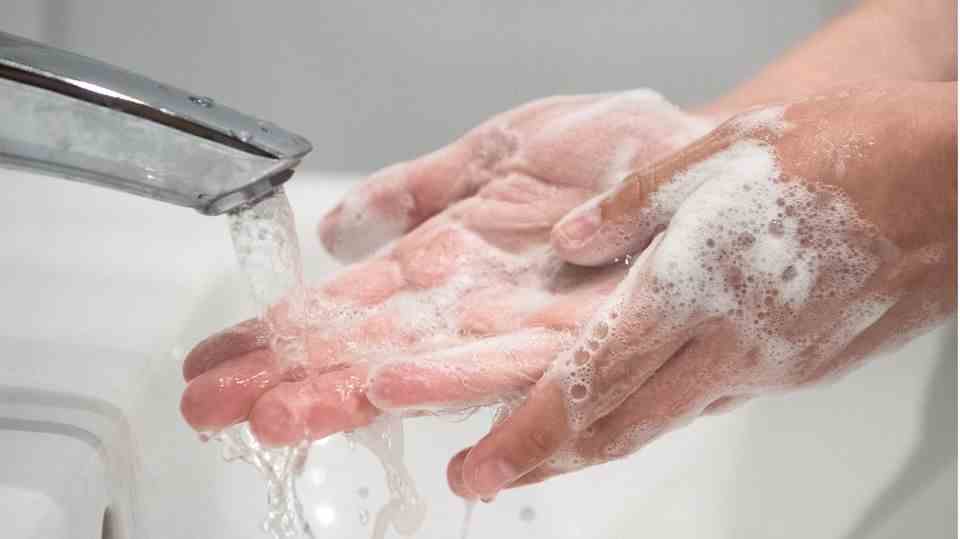48 soaps tested
Harmful ingredients: Ökotest punishes four liquid soaps as “insufficient”.
Washing hands is part of everyday hygiene
©Getty Images
Proper hand washing is an important protection against diseases, especially in winter. Ökotest has now checked which soap is suitable. Some liquid soaps should be avoided.
If you want to protect yourself from the numerous germs and pathogens in everyday life, the most important step is to wash your hands regularly and carefully. But not every soap is equally good for the skin, as Ökotest now shows. In the test of 48 liquid soaps, five had problematic ingredients – and were rated as “poor” or even “inadequate”. There are plenty of excellently rated alternatives.
The test field was extremely broad. The liquid soaps were bought in discounters, drugstores, supermarkets and online shops, the prices are between 74 cents and 25 euros per half liter of soap. Twelve of the soaps even have a natural cosmetics certification. The test looked for critical fragrances and preservatives and checked the information on the ingredients, for example the pH value.
nature wins
Unsurprisingly, the verdict was best for the certified natural soaps: All twelve are “very well” suitable for contact with human skin in terms of ingredients, according to Ökotest. But three of the regular soaps can also secure top marks. Among the test winners are even organic own brands of drugstore chains Rossmann (Alterra cream soap organic olive for 2.48 euros per 500 ml) and DM (Alverde liquid soap organic olive, organic orange for 2.08 euros per 500 ml). So you don’t have to pay the 25 euros for half a liter.
Better no musk scent
At the other end of the spectrum are the five devalued soaps. The testers discovered chemicals that produce an artificial musky scent four times. The problem: The polycyclic compounds can accumulate in human adipose tissue. Because liver damage caused by the substances was also detectable in animal experiments, Ökotest made a harsh judgment: “No one needs that,” says a summary of the results. The products were devalued accordingly.

In one case, the testers found an even more harmful ingredient: the halogenated organic preservative chloromethylisothiazolinone (CIT) can trigger severe allergic reactions, which is why it is simply banned in cosmetic products such as creams that penetrate the skin. Because soaps are always washed off, it is allowed in them, but Ökotest still considers them an unnecessary risk. And therefore rates the soap as “poor”.
There were further devaluations in the test for the use of unidentifiable halogenated organic ingredients and for the use of PEG compounds. Although they are useful as surfactants for the washing effect, Ökotest is still critical of them because they make the skin more permeable to foreign substances. Especially since the test winners show that it can also be done without.
Solid or liquid?
A much discussed question is whether solid or liquid soap is better in everyday life. In terms of cleaning, no difference could be proven, explains Ökotest. What speaks in favor of liquid soaps is that as mixed substances – strictly speaking, they are not pure soaps – they respond better to the needs of the skin and can adjust the pH value, for example. In fact, the value in the test was in the optimal range for all tested soaps. The soaps in one piece have another advantage: Because they require less packaging, they generate significantly less waste.


